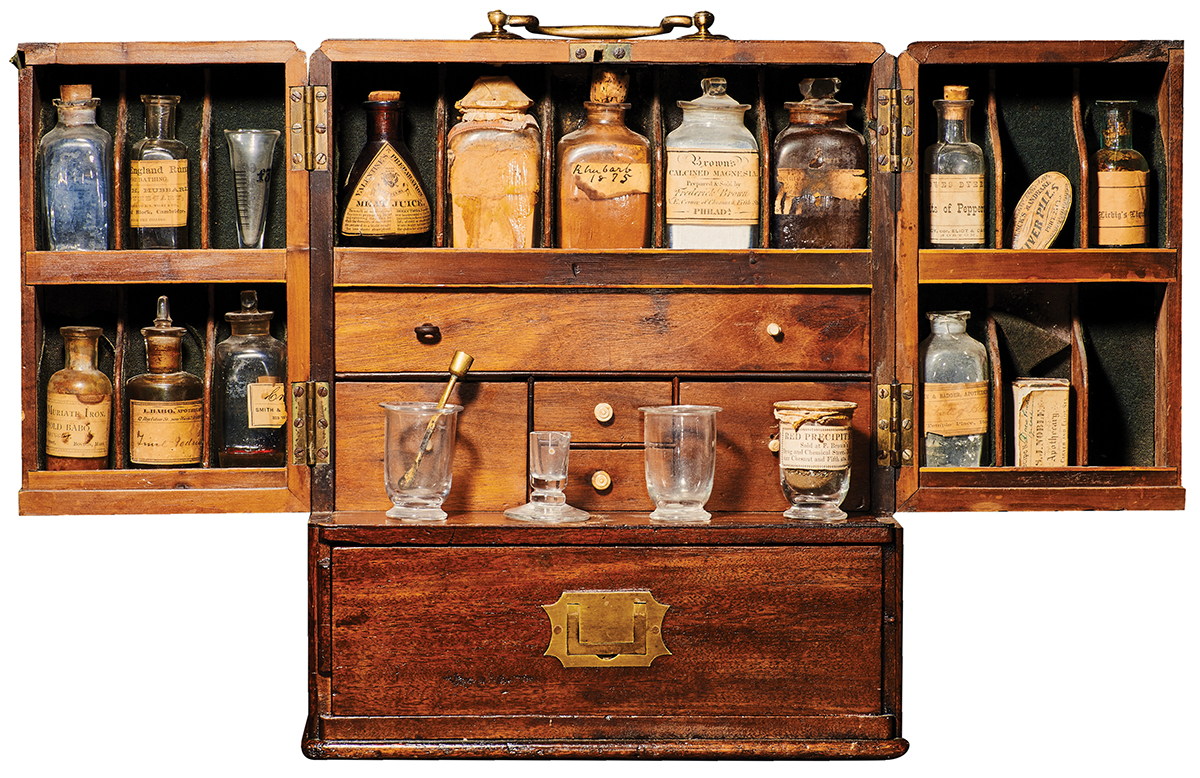A 19th-Century Apothecary Kit

Photograph by Tim Kennedy
Most physicians today would cringe at the notion of prescribing meat extracts or concocting their own remedies from scratch, but medicine was an imperfect science in Victorian-era Boston, as evidenced by this 19th-century apothecary kit. The wooden case, which likely belonged to Massachusetts General Hospital surgeon Samuel Cabot, holds a number of noteworthy items, including powdered calcined magnesia, a precursor to the laxative milk of magnesia; essence of peppermint, a popular remedy in those days for indigestion; and a mortar and pestle, so Cabot could mash together these raw materials as he deemed fit.
“It wasn’t like today, where everything is ready-made and inserted in a pill,” says Sarah Alger, director of the Museum of Medical History and Innovation at MGH. Bizarre as the kit’s contents may seem, Alger cautions that medicine evolves quickly and that in the not-so-distant future, our own medical practices could look similarly foolish: “Fifty or 100 years from now, we might be scratching our heads over some of the things we’re using now.”
Where to See It: The Paul S. Russell, MD Museum of Medical History and Innovation at Massachusetts General Hospital


